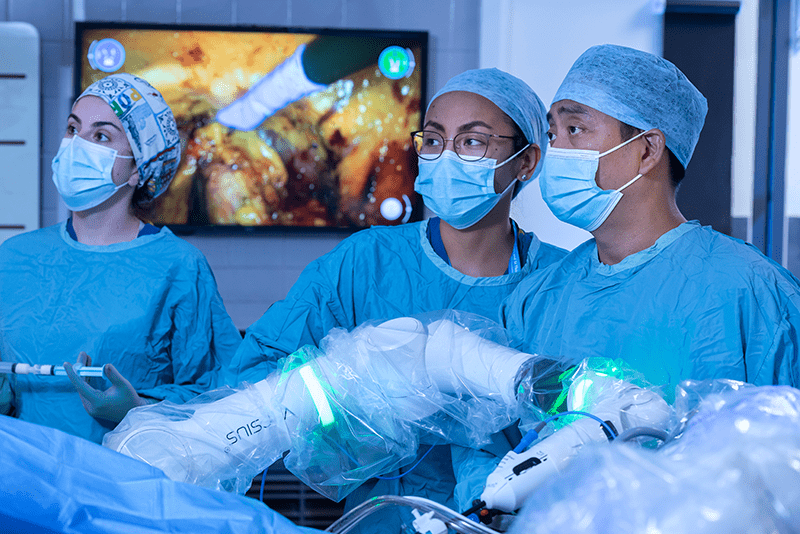
latest
Guy’s and St Thomas’ acquire a Versius robot for keyhole surgery
Urology patients are the first to benefit from minimally invasive surgical techniques

“While minimal access surgery is well-established as the peak of patient care, when performed manually, without the aid of robotics, it can be extremely demanding for surgeons – both physically and mentally.” Prokar Dasgupta, honorary consultant urological Surgeon at Guy’s and St Thomas
Guy’s and St Thomas’ NHS Foundation Trust has become the first hospital in London to implement a Versius robot for use in keyhole surgery.
The robot, which is made by Cambridge company CMR Surgical, makes it easier for surgeons to carry out minimally invasive surgery. It is initially being used with urology patients, but there are plans to extend the use to patients having colorectal and general surgery. The hospital has already used Versius to perform the first robotic prostatectomy in the UK.
Minimally invasive (keyhole) surgery is performed by making small incisions in the skin. The surgeon inserts a laparoscope, a thin tube with a light and lens for viewing, to guide the surgery. Although it offers multiple benefits for patients, including less scarring, faster recovery times and shorter hospital stays, it normally requires highly-trained, specialist surgeons to perform it. It also takes a toll on the surgeon, said Prokar Dasgupta, honorary consultant urological Surgeon at Guy’s and St Thomas, and professor of surgery at King’s College London and King’s Health Partners: “While minimal access surgery is well-established as the peak of patient care, when performed manually, without the aid of robotics, it can be extremely demanding for surgeons – both physically and mentally.”
Ergonomic design allows surgeons to operate for longer
The Versius robot is guided by the surgeon from a three-dimensional, magnified monitor. The four robotic arms controlling the instruments move independently of each other, and, like human arms, have wrists on the end. Complex minimally-invasive procedures that would normally take a long time to learn can, using the robot, be learnt very quickly, enabling the technique to be performed by a greater number of surgeons.
“Versius could help us to improve surgeon wellbeing at this challenging time because it has an ergonomic design, allowing surgeons to operate in much more comfortable, neutral positions,” said Dasgupta. “This has the potential to enable surgeons to operate for longer, while experiencing less pain and discomfort.”
Ben Challacombe, consultant urological surgeon at the trust said that the “small-scale and modular design” enabled the individual robotic arms to be moved between hospital sites and departments: “This means that a number of different procedures can be performed efficiently across our busy operating theatres and more patients will have access to innovative robotic technology.”
Versius is now established within the NHS and is also being used by health systems in Europe, Australia, India and the Middle East. CMR Surgical has recently announced that it will open a new large-scale manufacturing facility in Cambridgeshire to meet the increasing global demand for the robot.